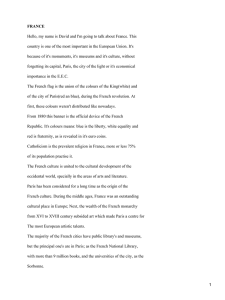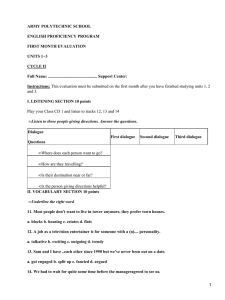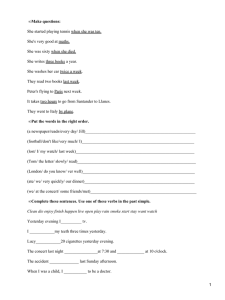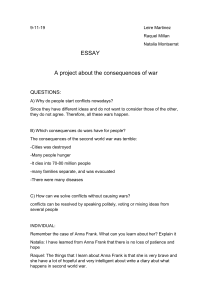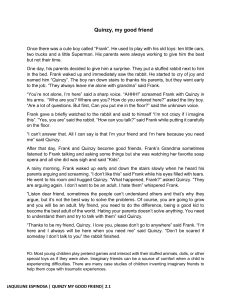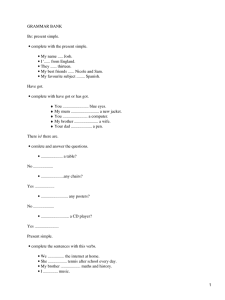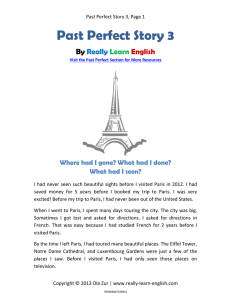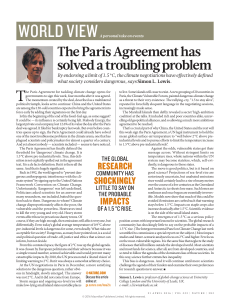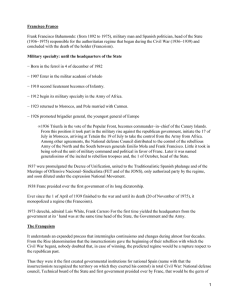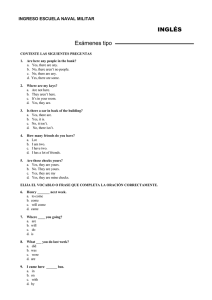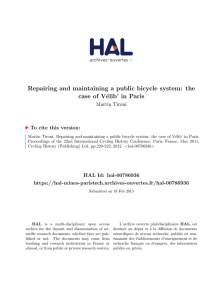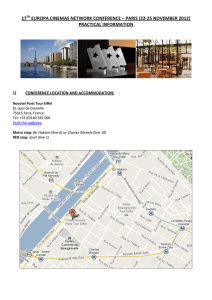EXERCISE POST−EXAM TRANSLATE THE FOLLOWING TEXT. PRESENT PERFECT SIMPLE VS PAST SIMPLE
Anuncio
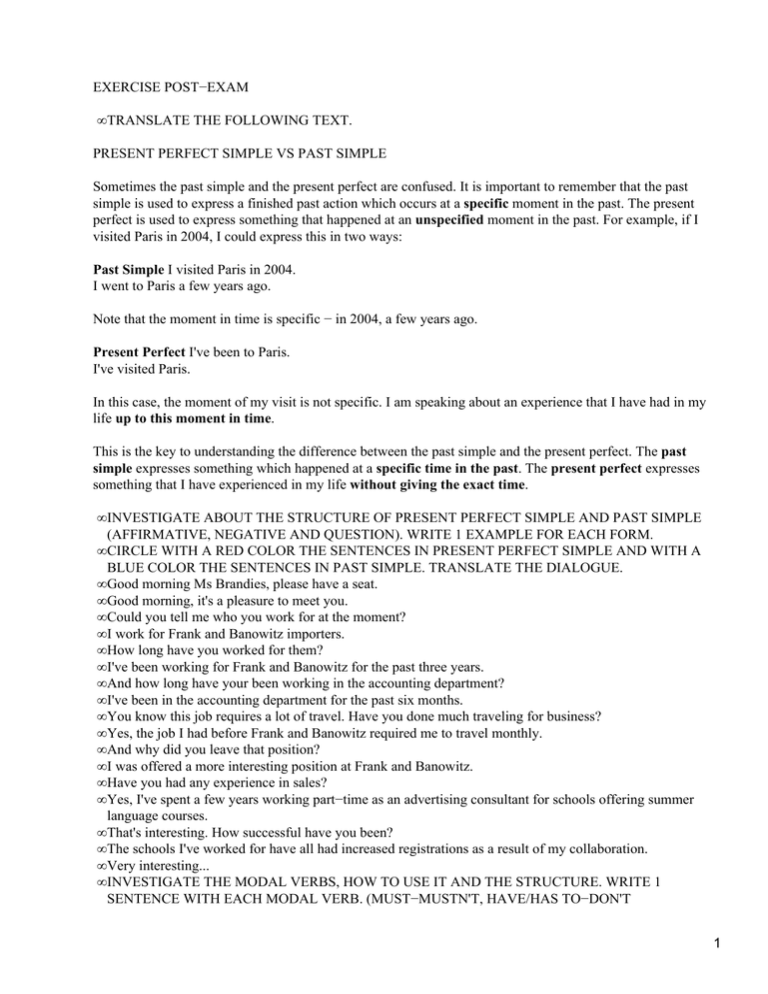
EXERCISE POST−EXAM • TRANSLATE THE FOLLOWING TEXT. PRESENT PERFECT SIMPLE VS PAST SIMPLE Sometimes the past simple and the present perfect are confused. It is important to remember that the past simple is used to express a finished past action which occurs at a specific moment in the past. The present perfect is used to express something that happened at an unspecified moment in the past. For example, if I visited Paris in 2004, I could express this in two ways: Past Simple I visited Paris in 2004. I went to Paris a few years ago. Note that the moment in time is specific − in 2004, a few years ago. Present Perfect I've been to Paris. I've visited Paris. In this case, the moment of my visit is not specific. I am speaking about an experience that I have had in my life up to this moment in time. This is the key to understanding the difference between the past simple and the present perfect. The past simple expresses something which happened at a specific time in the past. The present perfect expresses something that I have experienced in my life without giving the exact time. • INVESTIGATE ABOUT THE STRUCTURE OF PRESENT PERFECT SIMPLE AND PAST SIMPLE (AFFIRMATIVE, NEGATIVE AND QUESTION). WRITE 1 EXAMPLE FOR EACH FORM. • CIRCLE WITH A RED COLOR THE SENTENCES IN PRESENT PERFECT SIMPLE AND WITH A BLUE COLOR THE SENTENCES IN PAST SIMPLE. TRANSLATE THE DIALOGUE. • Good morning Ms Brandies, please have a seat. • Good morning, it's a pleasure to meet you. • Could you tell me who you work for at the moment? • I work for Frank and Banowitz importers. • How long have you worked for them? • I've been working for Frank and Banowitz for the past three years. • And how long have your been working in the accounting department? • I've been in the accounting department for the past six months. • You know this job requires a lot of travel. Have you done much traveling for business? • Yes, the job I had before Frank and Banowitz required me to travel monthly. • And why did you leave that position? • I was offered a more interesting position at Frank and Banowitz. • Have you had any experience in sales? • Yes, I've spent a few years working part−time as an advertising consultant for schools offering summer language courses. • That's interesting. How successful have you been? • The schools I've worked for have all had increased registrations as a result of my collaboration. • Very interesting... • INVESTIGATE THE MODAL VERBS, HOW TO USE IT AND THE STRUCTURE. WRITE 1 SENTENCE WITH EACH MODAL VERB. (MUST−MUSTN'T, HAVE/HAS TO−DON'T 1 HAVE/DOESN'T HAVE TO, SHOULD−SHOULDN'T, MAY−MAY NOT, MIGHT−MIGHT TO, WOULD−WOULDN'T, COULD−COULDN'T) 2
